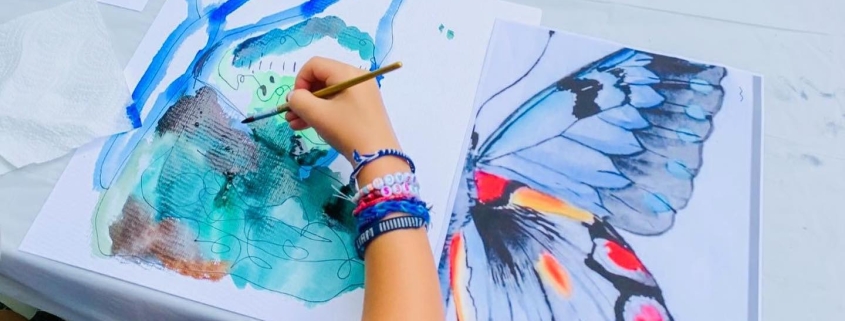Mental Health Awareness Month: Spotlight on Tweens
Navigating mental health discussions with your tween can feel daunting, but Mental Health Awareness Month serves as a reminder of a parent’s crucial role in fostering their child’s well-being during the transition into adulthood. This guide provides insights into the physical and emotional changes your tween undergoes, common mental health issues, and actionable strategies you can take to support your child through this pivotal phase.
What’s Happening To My Tween?
Consider these interesting facts about how tween brains change and develop from ages 10 to 13:
- The prefrontal cortex, responsible for higher-order thinking skills such as decision-making and impulse control, undergoes significant development.
- Synaptic pruning, a process where unnecessary neural connections are eliminated, occurs twice during brain development — once between ages 2 and 10, and again between 13 to 20 —leading to increased short-term risk taking and more efficient long-term brain functioning.
- The limbic system, the pleasure-seeking center of the brain, goes into overdrive, heightening emotional sensitivity, susceptibility to peer influence, and novelty-seeking.
- Myelination, the process of insulating nerve fibers with a fatty substance called myelin, increases, enhancing the speed and efficiency of neural communication.
- Surging hormones like estrogen, progesterone, and testosterone influence physical changes such as puberty and growth spurts. Other hormones like dopamine and cortisol can affect motivation, learning, decision-making, and behavior.
- Sleep patterns undergo changes during puberty, as tweens’ internal biological clocks shift forward, making it harder to fall asleep before 11 pm and wake before 8 am. This circadian rhythm disturbance can result in impaired attention, memory, and learning.
Understanding Mental Health Issues in Tweens
Mental health encompasses a wide range of conditions and experiences, and tweens are not immune to its complexities. Anxiety disorders, depression, ADHD, and eating disorders are among the most common issues that tweens may face. These challenges can arise from a combination of biological factors, environmental stressors, and social influences unique to this age group.
Signs and Symptoms to Watch Out For
Recognizing the signs of mental health issues in tweens is essential for early intervention and support.
Keep an eye out for changes in behavior or emotional patterns, such as:
- Sudden mood swings
- Withdrawal from activities they used to enjoy
- A noticeable decline in academic performance
- Physical symptoms like frequent headaches, stomachaches, or fatigue
Consider Jack, an 11-year-old who has always been passionate about soccer. Recently, he’s been spending more time alone in his room, avoiding his teammates and skipping practices. His grades have started to slip, and he seems irritable and easily frustrated. These changes in behavior could be red flags for depression or social withdrawal, which often go unnoticed or misunderstood in tweens.
Now imagine Sarah: a 10-year-old who has always been outgoing and sociable. Lately, she stalls getting ready for school and makes occasional remarks about difficulty speaking up in class or making new friends. She often complains of stomachaches and has trouble sleeping at night. These could be signs of an underlying anxiety disorder, exacerbated by the academic and social pressures of tween life.
Navigating the Transition to Adolescence
The tween years mark a significant transition from childhood to adolescence, bringing with it a host of new challenges and stressors. Peer pressure, academic expectations, and physical changes can all impact your child’s mental health and well-being during this time.
To support your tween through this transition, maintain open lines of communication and actively engage in their lives. Set reasonable expectations and boundaries, while also allowing them space to explore their own interests and identity. Be present and available to offer guidance and support as they navigate new experiences and challenges, and don’t hesitate to seek professional help if needed.
Research supports a number of healthy self-esteem enhancing interventions and activities for tweens:
- Sports and Physical Activities: Sports participation in early adolescence is associated with higher levels of self-esteem and lower levels of depression, according to a study published in the Journal of Adolescence by Barber et al. (2018).
- Artistic and Creative Pursuits: Art therapy has a positive effect on self-esteem and emotional wellbeing in adolescents, according to research conducted by Stuckey and Nobel (2010).
- Parent and Child Bonding: Parent-endorsed after-school clubs, religious activities, and volunteer work, have a positive correlation with adolescent self-esteem and family cohesion, according to research by Huebner and Mancini (2013).
Navigating mental health in tweens requires proactive awareness, communication, and support from parents and caregivers. By understanding the signs and symptoms of common mental health issues, fostering open dialogue, and providing practical strategies for coping and resilience, you can help your tween navigate this transitional phase with confidence and resilience.
If you’re looking for fun bonding activities to add to your schedule, come see what we have to offer.



